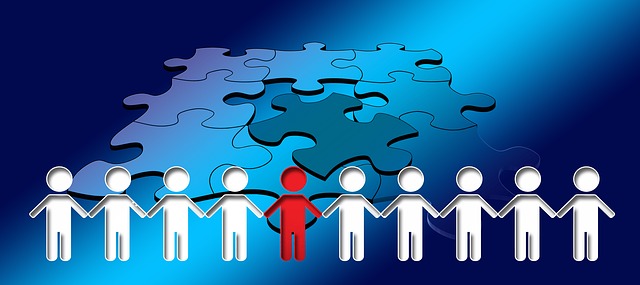clear

source:
geralt / Pixabay
It depends on the degree of assimilation. The problem is the clash of cultures. The liberal view is that the hosting society has to make concessions. But it is equally true for the migrant society.
When a woman in London is hounded out of where she has lived for years because she is verbally abused for buying alcohol; or a native British boy is told by his Asian girlfriend not to walk her any further towards home because someone might see --- then resentment is fostered. Of course there's abuse the other way too, but the point is that assimilation is a 2-way thing.
And when well-meaning indigenous people get snubbed it is natural for resentment to occur.
And if mainstream political parties don't address these problems and instead talk in generalised platitudes then the door is wide open for more radical, single-issue politics to rise.
 0
0
clear
I would argue that political radicalization is already present in a society even before there is evidence of an increasing migrant presence; after all, norms are built in from childhood and it's difficult to rid people of such radicalization later in life. Of course, if someone experiences something negative because of migrant presence, they may become more radicalized in their thinking, but that's simply a case of the radical views then coming to light; it doesn't mean it wasn't always there. With increasing migrant presence, people are simply becoming more vocal about their opinions as there seems to be more support for them (e.g. UKIP), which gives those with radical opinions a platform. Coupled with the media, this may then lead to increased political radicalization as individuals that may not have even considered the effects of immigration may then become aware of negative tropes associated with it and, consequently, become radical in their thoughts, voting habits, and even how they act towards other people. It's like a line of dominos, with each triggering another.
 0
0
clear
Yes. In my opinion, political radicalization is caused by fear of loosing national identity and traditional values. Instead of being aimed to the affirmation and reevaluation of their traditional values, that fear is aimed against migrants and other minorities by various prohibitions.
Fresh example is Denmark where parliamentary majority have been agreed on “ghetto package", laws that regulate life in 25 low-income and heavily Muslim enclaves, saying that if families there do not willingly merge into the country's mainstream, they should be compelled. (New York Times).
Burk ban laws are introduced in Austria, France and Belgium. In several countries in Europe radical right-wing parties with politicians against migrants, have larger and larger support, in some of them (Denmark, Austria, Hungary) they won the elections. These examples also tell the story of political radicalization.
When you know who you are and your identity, no one can threaten or jeopardize it. Especially not other people or cultures.
 0
0
clear
 Marja Radić
5 years, 8 months ago
Marja Radić
5 years, 8 months ago
Two good examples come to mind when discussing the impact of an increasing migrant presence and political radicalization. The United States of America and South Africa. Donald Trump won the Republican ticket and subsequently the 2016 presidential election due to his mobilization of the conservatives on the promise of putting America first and Making America Great Again (MAGA).The phrase 'America First' is not clouded in ambiguity, and President Trump didn't mince his words and actions to hide what he meant.The wall separating Mexico and USA began construction amidst praise and fanfare from the far-right contingent. This wall was meant to prevent not just the Mexicans but the whole Latino community from central and south America from setting foot in the 'great' USA again via the porous Mexico border. Other policies introduced by President Trump like massive deportations and making it harder to get legal representation for immigrants were also a tune to the same song, not to even mention 'The Caravan' a highly publicized multitude of people making their way to the border. How else would the outspoken Trump win the Republican ticket and the election without radicalizing the far-right populace to view migrants as the enemy? If there wasn't a large enough population of migrants in the USA would the Trump rhetoric have taken shape? My guess is he would have needed a very different campaign strategy. On the other hand, in South Africa, Xenophobia has taken root due to the population being told that other Africans are taking their jobs and business opportunities. Politicians would rather rile their voters and fuel the rhetoric rather than attempt to deal with unemployment and lack of empowerment to do business.
 0
0
clear
 Alvine Spencer
1 year, 5 months ago
Alvine Spencer
1 year, 5 months ago

Sign up to post or vote on answers.
Improveo will help systemize your knowledge.
